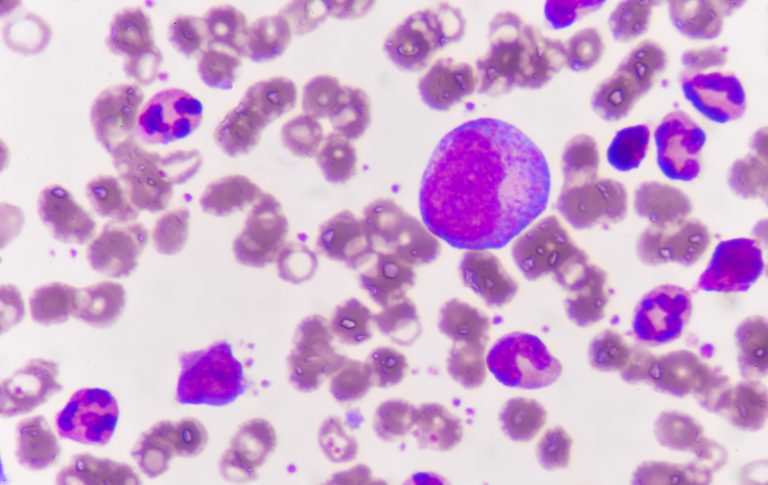
Researchers from the Cleveland Clinic have discovered a new class of drugs that, if approved, could be effective for treating myeloid leukemia.
The drug candidate —TETi76—developed by the team targets leukemia cells that contain mutations in the TET2 gene, one of the most common drivers of this type of blood cancer.
Jaroslaw Maciejewski, M.D., Ph.D., a practicing hematologist and professor at the Cleveland Clinic, has been researching mutations driving leukemia with his team for the last 10 years. This work is the culmination of that research.
“In preclinical models, we found that a synthetic molecule called TETi76 was able to target and kill the mutant cancer cells both in the early phases of disease… and in fully developed TET2 mutant myeloid leukemia,” said Maciejewski.
The TET gene family encodes enzymes that are able to alter the methylation of the DNA leading to changes in gene expression and potentially increased cancer spread. TET2 is more powerful than other enzymes in this group, and loss of function mutations in this gene cause abnormal cell growth. Residual activity of TET1 or TET3 can promote the spread of leukemia cells and so it is important to target these enzymes to help fight TET2 mutant cancers.
A natural molecule called 2-hydroxyglutarate blocks the enzymatic activity of TET group enzymes—TET1, 2 and 3. The drug candidate developed by Maciejewski and colleagues mimics the activity of this molecule and therefore suppresses the activity of the TET enzymes.
So far, it’s still early days. The candidate drug has just been tested in cell lines and a mouse model, but the results seem promising.
“We are optimistic about our results, which show not just that TETi76 preferentially restricts the growth and spread of cells with TET2 mutations, but also gives survival advantage to normal stem and progenitor cells,” said Babal Jha, Ph.D., an associate professor at the Cleveland Clinic and corresponding author on the study describing the work, which was published in the journal Blood Cancer Discovery.
If the drug candidate reached the clinic it would be the first in a new class of drugs targeting myeloid leukemia. This kind of blood cancer is relatively common and mostly treated with chemotherapy, either on its own or in combination with targeted drugs. The research team plans to keep testing and hopes to bring this candidate to the clinic in the future.













